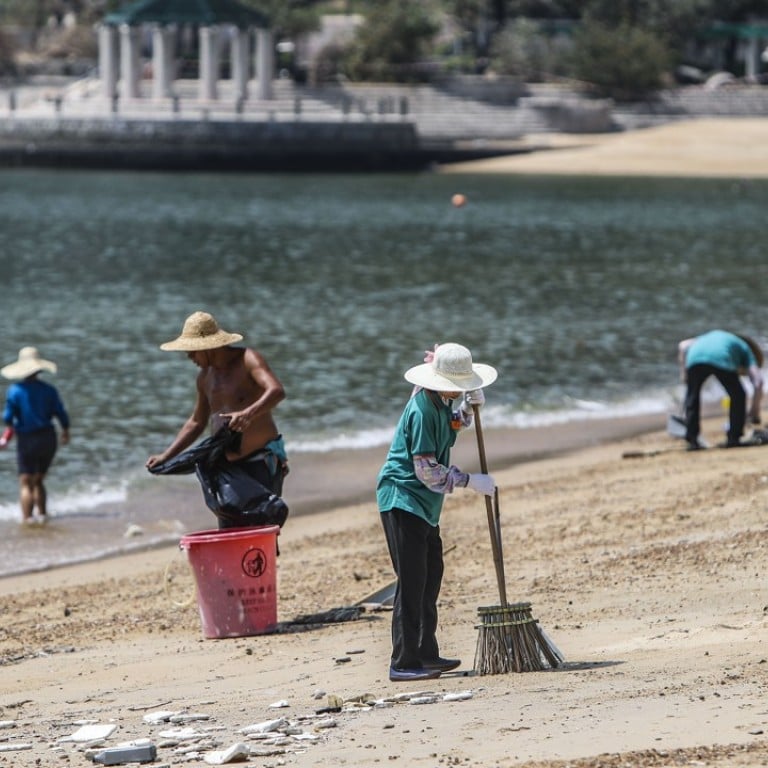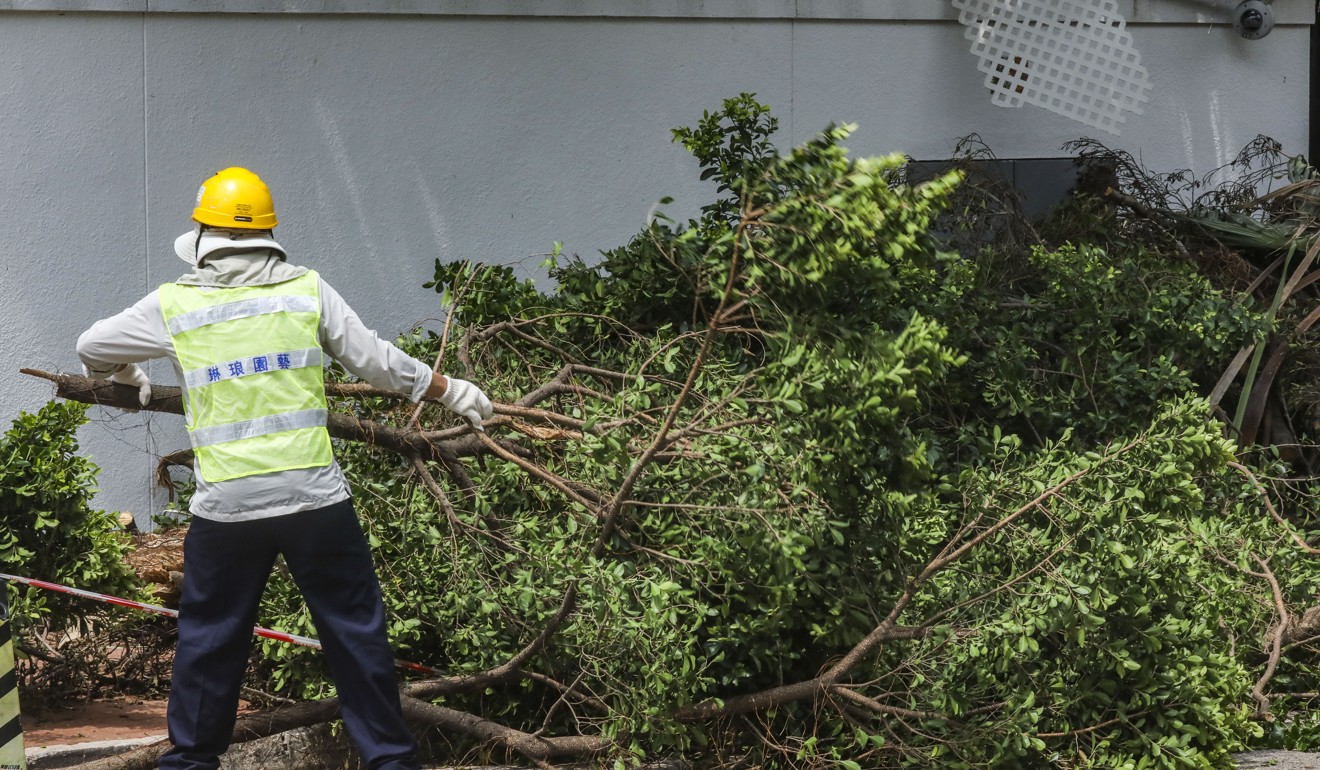
Typhoon Mangkhut: hey Carrie Lam, a day off for Hong Kong made economic sense
Strange as it might seem, allowing most workers to down tools for a day would have subtracted nothing from Hong Kong’s economic output. And a full-scale clean-up could even have added to GDP. Here’s how
Hong Kong government head Carrie Lam has drawn flak over the past week for failing to order non-essential workers to take the day off on Monday to allow for a clean-up following Typhoon Mangkhut. Most commentators suspected Lam was concerned about the territory’s economy. They thought she was worried a day off would mean the inevitable loss of a day’s economic output, which would knock 1.6 per cent off Hong Kong’s gross domestic product in the third quarter.
This reasoning is flawed. Strange as it might seem, allowing most workers a day off would not have subtracted anything from the city’s economic output. And launching a full-scale clean-up could even have added to its gross domestic product (GDP).
Both those assertions seem counter-intuitive, so let’s examine them in detail.
It is relatively straightforward to confirm that an additional day off following last weekend’s storm would have had a negligible impact on the economic data. All we have to do is look at the historical data.
Over the past 50 years, Hong Kong has been hit by 74 typhoons severe enough to cause the government’s observatory to hoist a signal eight warning or higher, shutting down almost all economic activity in Hong Kong, often for a full working day. And of those 74 storms, 56 have struck the city in the third quarter of the year. By comparison, 10 have hit in the second quarter, and eight in the fourth quarter.
On average, between 1968 and 2017, the observatory hoisted typhoon signal eight or higher for 15 hours during the third quarter of each year. Allowing for nighttime storms, and the disruption as things get back to normal, that equates to almost a full working day lost to typhoons in each July-September period over that time.
The comparable figures for the second and fourth quarters are just over two hours. In the past 50 years, no working time has been lost to typhoons in the first quarter of the year.
Now, assuming 62 working days in each quarter, the loss of an extra one would knock 1.6 per cent off Hong Kong’s GDP in that three-month period.
So all else being equal, we might expect the city’s historical GDP data to show a discernible typhoon effect in the third quarter of the year.
Lehman crash, 10 years on: nearly all you read will be wrong
Specifically, we would expect average quarter-on-quarter growth rates to be appreciably lower in the third quarter of the year than in the second (with the effect exaggerated by the Lunar New Year effect, which magnifies quarter-on-quarter growth in the second quarter relative to the first).
But there is no such effect. On average since the beginning of the 1970s, growth rates in the second quarter of the year have averaged 1.6 per cent. In the third quarter, they have averaged a thumping 7.1 per cent. Typhoons simply don’t show up in quarter-on-quarter GDP data.
Admittedly, there may be other seasonal effects at work that mask the impact of typhoons on the economy. But it is easy enough to check.

Again, no such effect shows up. In the third quarter of last year, Hong Kong recorded growth of 3.6 per cent, faster than 2.2 per cent in 2016 and 2.3 per cent in 2015. Other bad typhoon years show similar results. Typhoons do not detract from the city’s economic growth.
It’s not 2008. Don’t look to Beijing for a big stimulus programme
On reflection, this should not be too surprising. A typhoon might shut down economic activity for a day. But demand is deferred rather than eliminated. Businesses and employees simply work harder in the following days to make up for the lost time. Overall economic output is not affected.
So if a day lost to a typhoon doesn’t reduce the city’s economic output, it follows that ordering an additional day off for a post-storm clean-up won’t decrease output either. It may even boost output. At first, this would appear to contradict the work of 19th century French economist Frédéric Bastiat, who in an 1850 paper outlined the “broken window fallacy”.

Nonsense, argued Bastiat, because the shopkeeper who pays to repair his window cannot spend the money on something else, such as a new pair of shoes. In short, repairing destruction carries an opportunity cost that subtracts from economic output. This is fine – as far as it goes. But Bastiat made a crucial assumption that is often neglected by economists. He took it for granted that spending on repair work displaces spending that would have taken place elsewhere, so there is no additional money spent. But if the Hong Kong government were to finance clean-up work from its accumulated fiscal reserves – money officials have sucked needlessly out of the economy – the spending would clearly be additional, and would have a clear stimulative effect on the economy.
Turkey’s crisis shows a deeper disease – and Asia is infected
So next time a big storm hits, Carrie Lam can confidently order an extra day off for a clean-up, secure in the knowledge that it won’t damage Hong Kong’s economy, and may even stimulate the city’s growth. ■
Tom Holland is a former SCMP staffer who has been writing about Asian affairs for more than 25 years

